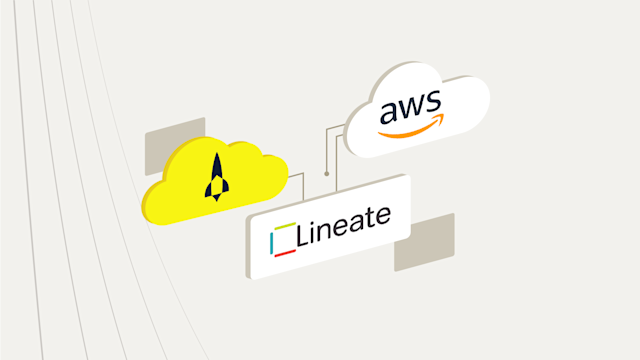Say goodbye to targeted ads – Here’s what’s next
Discover how AI agents, personalization, and data optimization are reshaping the AdTech industry, rendering traditional identity-based advertising obsolete.
Imagine a future where advertising doesn’t rely on human identity targeting. Sounds far-fetched? It’s not—this shift is not only possible but inevitable. Artificial intelligence (AI) is advancing at breakneck speed, while stricter privacy regulations and changing consumer preferences are driving a major transformation. Soon, identity-based advertising, which relies on tracking and personal data, will be a thing of the past. In its place, AI-driven personalization will emerge, creating more relevant, non-invasive ads without the need for human identifiers. The future of advertising is here, and it’s radically different.
How identity targeting is changing with the end of cookies
Third-party cookies are still a cornerstone of digital advertising, but their end is near. With browsers like Google Chrome and Safari leading the charge to phase them out, the industry is shifting toward privacy-first solutions. Companies like LiveRamp and The Trade Desk are stepping in with unified identity frameworks, connecting device IDs, email addresses, and first-party data to maintain targeting capabilities in a cookie-less world. However, the future points to a time when human identity targeting will be replaced by AI-driven personalization, reshaping how advertisers connect with audiences.
What the history of media shifts teaches us about the future
As media consumption has evolved, so have the ways we use identifiers. When the shift from desktop to mobile occurred, mobile device IDs became the norm. Likewise, the rise of Connected TV (CTV) brought household-based targeting via IP addresses and device graphs. Each transition introduced new identifiers. Now, with AI taking center stage, we expect the emergence of "agent IDs"—identifiers used by AI agents acting on behalf of users. In this future, human identity data may be fully abstracted, with AI-driven systems navigating decisions for users.
Will AI agents replace traditional search?
When AI agents take over product discovery, how will they find what they need? Traditional search methods might not be enough. AI agents, with their pre-trained knowledge, could reduce the need for search engines entirely. This is where retrieval augmented generation (RAG) comes into play, allowing AI to pull real-time data to enhance its understanding. Brands will need to optimize their data to ensure relevance in this AI-driven environment, where decisions are based on utility factors like price and durability, not just brand recognition.
Even if an AI is pre-trained, it may still need to discover new options. So, where will it search, and how? One possibility is that we will need to imbue data with guideposts for these AI agents to find. This could mean that ads become more than just consumer-facing messages—they become data-rich utilitarian descriptions designed to optimize AI decision-making.
Consider an AI agent searching for AA batteries for a child’s toy. The user hasn’t specified a brand, but simply asked for "the best option." The agent might prioritize factors like durability, price, or eco-friendliness, rather than brand recognition. In this scenario, brands will need to focus on optimizing their data for AI-driven systems to ensure relevance.
How AI is revolutionizing search with instant answers
One reason people are increasingly turning to AI for answers is its speed. AI can provide succinct, actionable insights without the need to trawl through search results. This shift was predicted by people like Scott Galloway, who saw the rise of voice search as a precursor to AI-driven solutions.
With AI, the big question for marketers becomes: how do you get the AI agent’s attention? Search engine optimization (SEO), as we know it, might evolve into something more akin to AI optimization, where ranking high in an AI's decision matrix is the new goal. Emerging tools like SHAP and LIME can help marketers understand how AI models make decisions, ensuring their content is surfaced appropriately.
Privacy concerns will also play a significant role in this new world of AI-driven search. Techniques like federated learning and differential privacy will allow AI systems to leverage aggregated data without compromising user anonymity—an essential consideration as privacy regulations like GDPR and CCPA become more stringent.
How ads are transforming into seamless recommendations
The convergence of ads and recommendation engines is already happening. For instance, dynamic creative optimization (DCO) adjusts ad content in real time, based on user behavior and contextual data. Similarly, dynamic product optimization (DPO) updates product recommendations based on AI insights.
The future will be about increasingly granular personalization, driven by semantic search capabilities. As AI agents execute these tasks, the ads that serve them won’t feel like traditional ads at all—they will be hyper-relevant, contextually aware recommendations that merge seamlessly with the AI’s objectives.
This is where the line between recommendation engines and ads blurs. AI agents will process all the data at their disposal to deliver precise, utility-based recommendations that reduce time and friction for users. This isn’t about creepy personalization or over-targeting—it’s about real utility.
Just the beginning
Have we reached the logical extreme of this transformation? Far from it. We're merely in the early stages, with a lot of game left to play. AI's integration into the advertising ecosystem will accelerate rapidly, but it’s clear that we’re moving towards a future where human identity targeting may become unnecessary, and AI-driven relevance takes its place.
The most successful advertisers of the future will be those who embrace this shift early, adopting AI technologies and rethinking their approach to marketing. The goal will be to provide real value and utility—cutting through the noise and delivering solutions that matter.
In conclusion, the death of identity-based targeting is not a matter of if but when. The future of advertising will be focused on utility, driven by AI agents that prioritize value and efficiency. Brands must adapt now or risk being left behind in a rapidly changing landscape. If you have questions, we have answers. Contact us.




